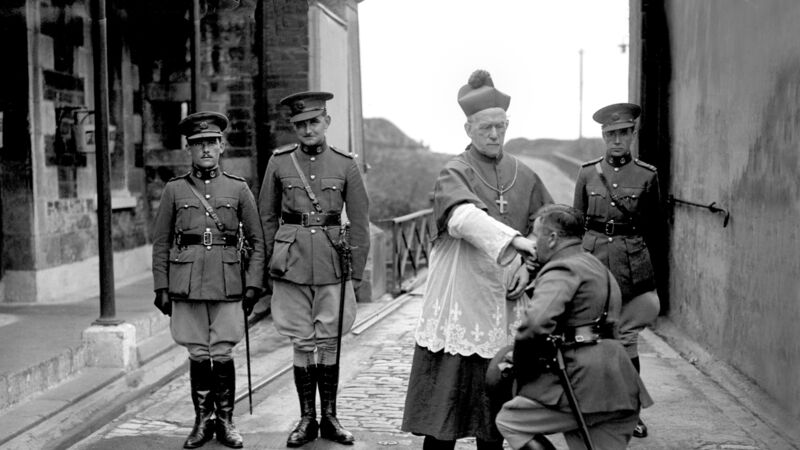Dramatic intervention by bishops in Irish Civil War politics

Bishop Daniel Cohalan is greeted by Irish Army officers at Fort Camden in Crosshaven as he arrives to celebrate the first mass at the fort in July 1938.
Try from €1.50 / week
SUBSCRIBETHE pastoral letter issued by the Irish hierarchy in October 1922, which forbade access to sacraments to those republicans who were active in the Civil War, was the most dramatic of a series of interventions into the political realm that the bishops had made, either collectively or individually, ever since the issue of the government of the country became a live one within the introduction of the third home rule bill in 1912.
In many respects, it represented a reversal from what was, by the standards of the Church, the radicalisation in its position that had been occurring during that intervening time (and especially since 1915). In turn, however, this reversion to an older, more conservative position was itself halted by interventions from a higher authority within the Church than even the bishops possessed.
Already a subscriber? Sign in
You have reached your article limit.
Annual €130 €80
Best value
Monthly €12€6 / month
Introductory offers for new customers. Annual billed once for first year. Renews at €130. Monthly initial discount (first 3 months) billed monthly, then €12 a month. Ts&Cs apply.
CONNECT WITH US TODAY
Be the first to know the latest news and updates
Newsletter
Keep up with stories of the day with our lunchtime news wrap and important breaking news alerts.

Select your favourite newsletters and get the best of Irish Examiner delivered to your inbox
Monday, February 9, 2026 - 5:00 PM
Monday, February 9, 2026 - 7:00 PM
Monday, February 9, 2026 - 9:00 PM
© Examiner Echo Group Limited